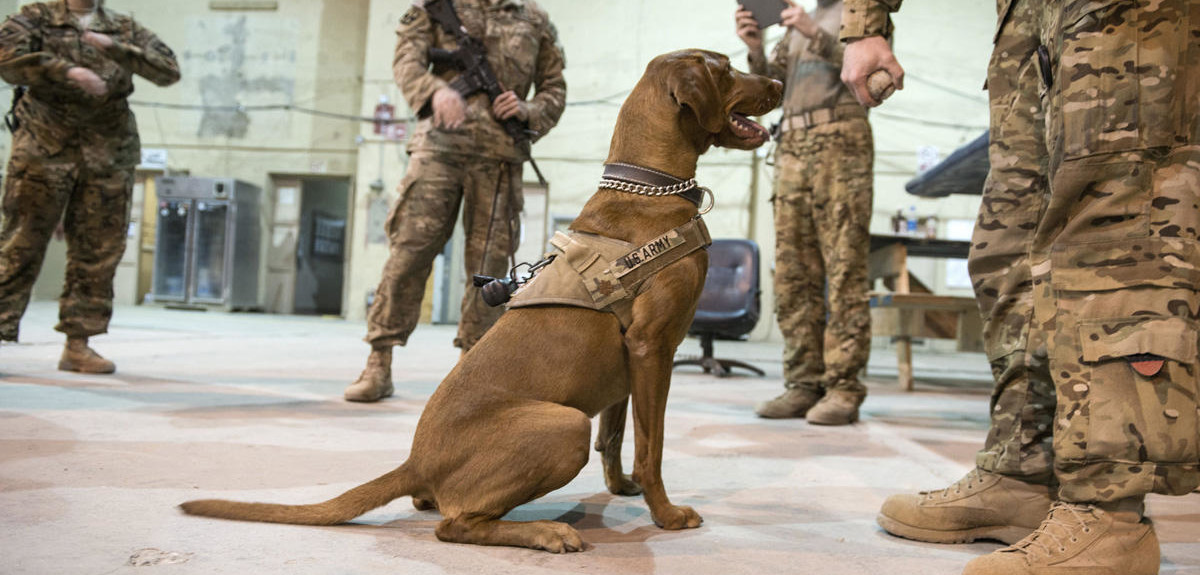Thanks to Robby’s Law, a federal policy passed in 2000, military canine handlers have first dibs when their former war dogs are put up for adoption back in the United States.
The purpose of this law is twofold. First, it prevents dogs who might be suffering from PTSD or physical disabilities from being adopted to civilians who can’t take care of them. Second, it helps reunite military veterans with the furry friends they bonded with in combat. It’s not unusual for a former military working dog to become a service or therapy dog for their handler after returning home.
But many veterans didn’t get to see their beloved war dogs again. Instead, they found that animal-training company K2 Solutions had already given them away.
The New York Post uncovered the ‘dumping’ of war dogs in a compelling investigation. When the Post spoke to veterans searching for their dogs and tracked the animals down, it found that K2 Solutions ignored handlers’ adoption requests in order to sell the dogs in bulk.
Multiple handlers told The Post that they have called and emailed K2 repeatedly about their dogs, submitting adoption paperwork as they were instructed to do. Yet they have been given little to no information, and at times deliberate misdirection, they say. Finding military dogs isn’t hard: They all have microchips, and the TEDD dogs have serial numbers tattooed on their ears.
A civilian who attended a K2 Solutions adoption event said that no one was vetted before taking home a dog. No one was asked whether they had small children at home or whether they were prepared to care for a dog with PTSD.
That civilian ended up giving the dog she adopted back to its handler.
Every handler The Post spoke with stressed this point: The dogs are not just dogs, or “equipment,” as the Army designates them. They are battle-scarred veterans who have saved lives.
Legislation concerning military working dogs has made recent progress. The Military Working Dogs Retirement Act passed along with last year’s defense budget guarantees that dogs and handlers aren’t separated at all. However, this law doesn’t help the handlers who were already torn away from their partners.
The entire Post article is worth the read. But it might make you hold your own dog a little tighter.




































